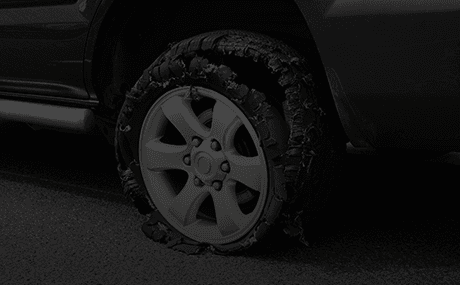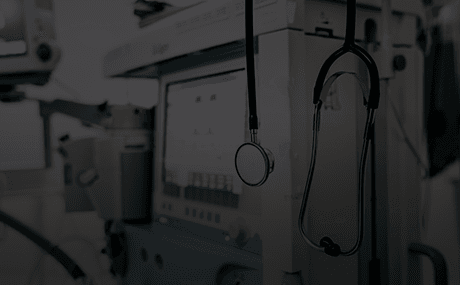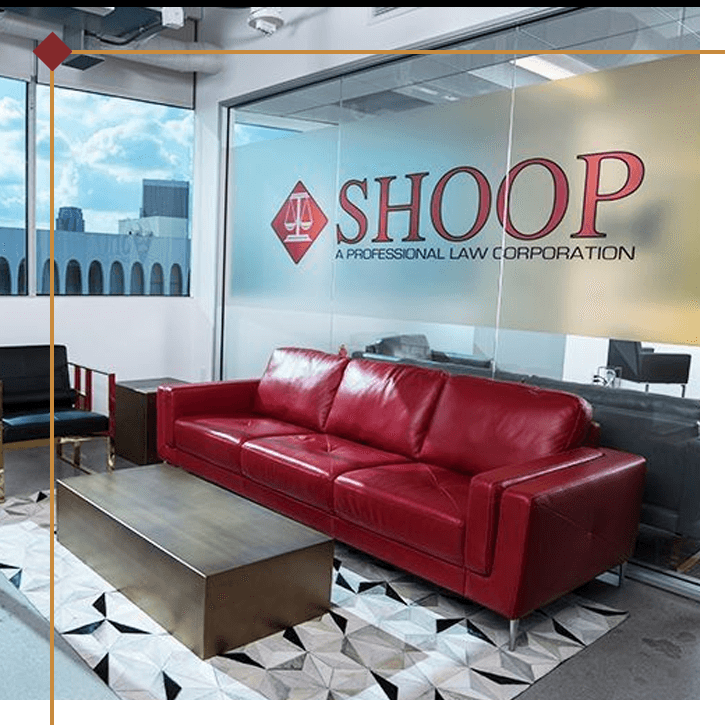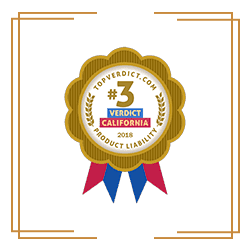

Relentlessly Pursuing the Best Possible Outcome
We've Recovered Hundreds of Millions for Our Clients
-
 $30m Product Liability Verdict
$30m Product Liability Verdict -
 $24m Wrongful Death Settlement
$24m Wrongful Death Settlement -
 $14m Medical Device Settlement
$14m Medical Device Settlement -
 $13.5m Personal Injury
$13.5m Personal Injury -
 $12m Child Wrongful Death
$12m Child Wrongful Death -
 $11m Personal Injury
$11m Personal Injury
We Are Here to Help You Recover the Compensation You Deserve
We handle the following product liability claims:
-
Design Defects
A design defect occurs when the product is produced with an unreasonably dangerous design. When a person is actually hurt by the product he has a claim for injuries. Some products have to be designed to be dangerous though. For instance of what good is an electric saw if it cannot cut? The question becomes whether it is unreasonably dangerous.
If the company failed to put a safety guard on the saw, it might then be called unreasonably dangerous. When prosecuting a law suit, the products liability attorney will examine the design of the saw and compare it others in the industry. If the defendant's saw lacks safety features which other manufacturers carry, there are grounds to consider the saw defectively designed.
-
Failure to Warn
Many products are quite useful and safe when used in a certain way. Nevertheless they can be quite dangerous when used in a way that the manufacturer did not intend. Where this occurs, the manufacturer has a duty to warn the customer of the hazards associated with the product.
With a lack of proper warning, the customer is entitled to pursue a claim to recover damages against the liable party. These cases can be quite complex with manufacturers using all manner of dodges to escape responsibility.
The following parties may be liable for failure to warn:
- Manufacturer
- Distributor
- Retailer
-
Hidden Defects
A hidden defect is one that is unknown to the manufacturer and to the customer until it appears in use. Where the hidden defect is unreasonably dangerous, the manufacturer is liable. If the manufacturer fails to recall the product in a timely manner once the defect becomes known, the manufacturer compounds its liability because it is guilty of negligence or recklessness.
A manufacturer is liable for hidden defects in a product if:
- The defect is unreasonably dangerous. The hidden defect can be in the design, manufacturing or marketing of the product.
- The consumer must have been using the product in its intended manner. For instance if a teenager is using a bicycle to jump off buildings and is injured he cannot bring a claim for hidden defect. A person who takes 6 aspirins cannot claim injury if the box says to only take 2.
- The consumer did not alter the design of the product in a substantial way. If you lift the chassis of your vehicle, do not complain if it rolls over.
-
Manufacturing Defects
Where you have been hurt by a manufacturing defect, it will be necessary to identify the correct company to sue. Even then a company will seek to shift the blame to a part supplier or distributor or to you saying you did not follow the directions or that you altered the product.
- Manufacturing defects in cars can be fatal defects. These include failures in seat belts, airbags and brakes. Some defective off road vehicles are known to cause rollover accidents killing the occupants.
- Many household products poorly manufactured can be disastrous. For example, a smoke detector that does not go off can mean catastrophic injuries, and food improperly canned can lead to food poisoning.
-
Marketing Defects
In the case of marketing defects, the error is in the communications about the product. The promotion may make false claims about what the product can accomplish. The promotion may have a failure to warn of risks. It may fail to communicate the safe use of the product.
Who has not seen ads on television of pharmaceutical drugs? The point is that if you take such and such drug, your arthritis will not hurt you anymore. All the while the voice over in the ad is telling you in a litany of side effects that may result. This is the drug company's effort by marketing to explain the risks of their potentially dangerous product.
-
Road Design Defects
When we drive on a street or highway, we expect that they will be safely designed and maintained. This is the responsibility of the state and local governmental authorities. Under state law these governmental units can be sued for dangerous road design or poor maintenance which results in accidents.
- Improper Grading of Curves: Roads should be graded with a slope to keep traffic on the road. A flat curve will lead cars to fly off.
- Inadequate shoulders: Where there is little or no shoulder, a car pushed off the road by traffic has no place to go but into a ditch.
- Invisible Road Signs: Sometimes signs are not placed in the correct positions or are covered up by trees or shrubs.
- Lack of stoplights: Some intersections have too much traffic. They require stoplights to prevent accidents.
- Unmarked road dips: A car hitting a dip at too great a speed can shake up the occupants and cause the car to skid out of control.
- Lack of Water Drainage: Without water drainage, water will go across the road and cause skids.
-
Breach Of Warranty
Where a person buys a product, a seller usually makes certain promises as to the usefulness, value and safety of the product. Some promises are express and some implied. Whe those promises are broken, the buyer has a claim for damages.
Express Warranty
Express warranty arises in several ways. First, the printed material that comes with the product plainly states that the product can do such and such. Second, seller may explain the product to the customer stating that the product can do a certain action. Third, the promotion of the product may show the product performing a function.
Implied Warranty of Merchantability
Certain warranties are implied by law even though the seller never promised a certain thing. There are certain basic requirements of merchantability. The product must meet certain minimum performance standards claimed for the product by the seller. If a manufacturer says a car drives nicely on highways, it implied that the car can reach 60 mph. There are also implied safety warranties. The seller of the car also implies the car will not blow up.
In the last 14 years, Shoop & team's impressive track record includes hundreds of Product Liability cases resulting in verdicts or settlements exceeding $1 million. For a Product Liability team with an exemplary track record, clients choose Shoop.

Start Your Product Defect Claim Today: Call (866) 884-1717
When a defectively designed product hits the shelves for consumer purchase, it becomes obvious that a thorough test could have shown that the product would be defective.
Put on the shelf anyway, the product is now open for public use and hundreds of people could be affected. If you have suffered as a result of this type of negligence, you need to speak with a product defect attorney at Shoop | A Professional Law Corporation as soon as possible.
We've helped many people win full compensation for product defect injuries. Contact our firm for award-winning help with your case!



-lg.2309181221228.png)






.1).2309181221550.png)